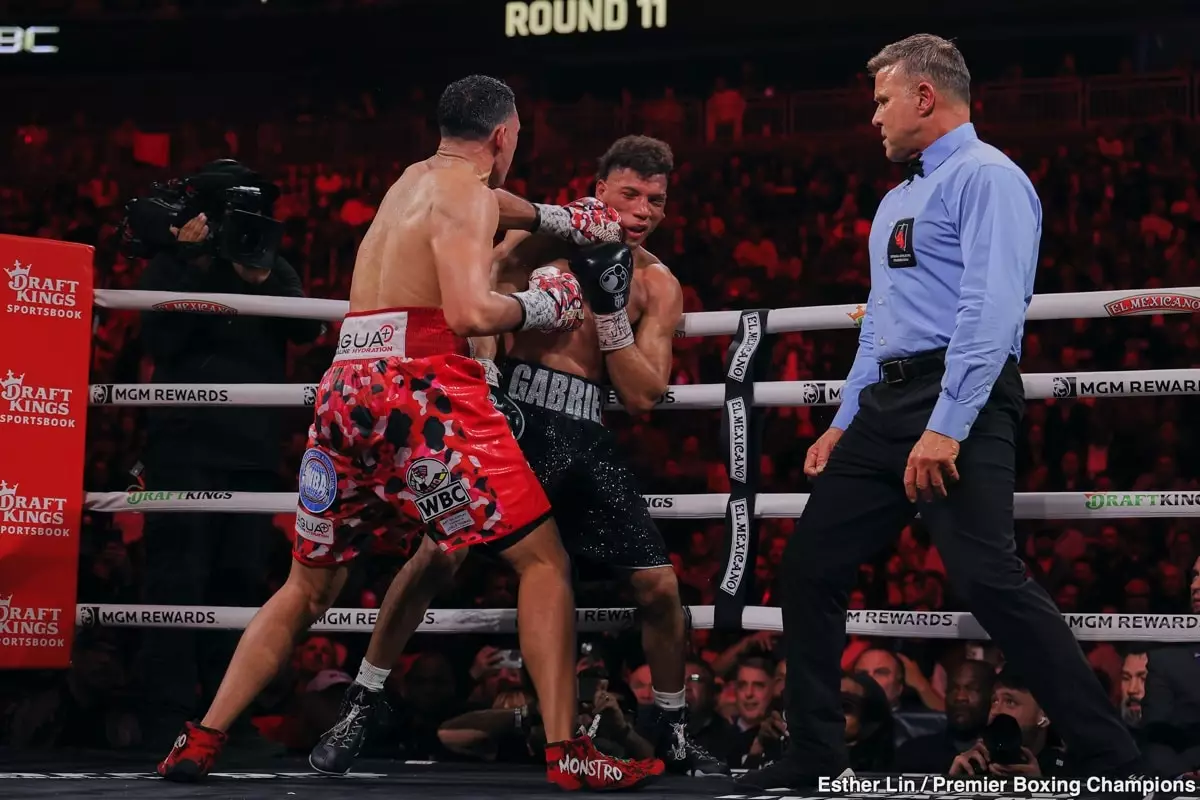In the ever-evolving world of boxing, strategy and timing are paramount. Trainers and fighters alike must navigate a landscape filled with politics, rivalries, and financial incentives. One such contender, David Benavidez, under the tutelage of his father, Jose Benavidez Sr., has made it abundantly clear that he has no intention of waiting idly for potential high-stakes matchups. Instead, he is targeting direct fights against notable opponents like Anthony Yarde, Callum Smith, and Gilberto ‘Zurdo’ Ramirez, illustrating a proactive approach that is often missing in the sport.
David Benavidez, once in the shadow of larger names, is now a fighter stepping boldly into the limelight. His father’s insistence on not taking a backseat to more prominent names emphasizes the powerful spirit driving the Benavidez camp. In an age where boxers often become passive players in their own career trajectories, the Benavidez team seeks to lead the charge. This proactive stance sets the stage for high-stakes engagements that could redefine Benavidez’s standing in the boxing hierarchy.
The Diplomatic Maze of Boxing Negotiations
Promoters play a significant role in shaping the careers of boxers, often prioritizing their financial interests over potential bouts. Eddie Hearn, the promoter for Callum Smith, showcases this perfectly by hinting at Smith’s interest in a fight with Benavidez while simultaneously reminding everyone about Smith’s WBO interim title. Here lies the conundrum: while a fight with Benavidez may excite fans, the allure of a larger payday linked to the winner of the Dmitry Bivol vs. Artur Beterbiev trilogy is undeniably tempting.
By positioning Callum Smith as a fighter with options, Hearn may merely be comforting fans with the idea that negotiations are robust. In reality, such statements often come across as a tactic meant to dissuade earnest match-making. If Smith were serious about facing Benavidez, Hearn would not underscore Smith’s potential paths against the trilogy winner. Instead, he wants to craft an image of a fighter with abundant choices, even if it means delaying a more captivating bout against a rising star like Benavidez.
The Heavyweight Decision: Bivol’s Choices and Missteps
The decision of Dmitry Bivol to vacate his WBC light heavyweight title, rather than engaging in a potentially punishing fight against Benavidez, raised eyebrows. Jose Benavidez Sr. voiced his surprise regarding Bivol’s choice. Indeed, the implications of this decision go beyond mere titles; they resonate within the wider context of what it means to take risks in professional boxing. The notion that Bivol would opt for a high-stakes trilogy against Beterbiev over a lucrative matchup against Benavidez underscores the struggle between financial motivations and competitive integrity.
With Beterbiev’s age and injuries complicating matters, many argue that a fight with Benavidez could have been a golden opportunity for Bivol. However, concerns about risk management within the sport come into play. High-level boxing is a game of chess, where the participants must navigate complex power dynamics while seeking the ultimate prize: victory and recognition. In this light, Bivol’s decisions can be interpreted as a search for the safest path rather than a demonstration of bravado, which inevitably leads to disillusionment among fans eager for thrilling matchups.
Forging Ahead: The Road to Contender Status
Benavidez’s campaign to challenge high-profile opponents reflects his eagerness to maintain an active presence in the ring. His father proclaims, “We’re not going to wait for nobody,” signaling a commitment to pursue victory by all means necessary. Moreover, this proactive mentality not only serves Benavidez as an individual fighter but also offers fans the kind of live action they crave. Boxing has a fickle fanbase, and a fighter’s willingness to engage with credible opponents can significantly bolster both their reputation and drawing power.
The prospect of Benavidez facing Yarde, Smith, or even engaging in a catchweight fight against Zurdo Ramirez would showcase an enthusiastic return to the ring. A matchup against Ramirez, especially, would carry cultural weight, pitting two Mexican fighters against each other in an electrifying bout. When boxers take calculated risks and engage with formidable challengers, they often pave the pathway to superstardom.
Furthermore, the strategy of refusing to step aside speaks volumes about the Benavidez camp’s unwavering commitment to earning titles through genuine competition. This ideology rejects the often frustrating transient nature of boxing politics, favoring grit and tenacity over passive waiting games that could cost them dearly in their pursuit of wasted opportunities.
In summation, David Benavidez’s approach and the strategic maneuvers of his camp not only underline a refreshing willingness to engage with the most competitive elements of boxing but also challenge traditional narratives of caution prevalent in modern-day pugilism. By refusing to be held hostage to matchmaking politics, they open themselves up not merely for triumph but also for an enduring legacy that resonates with fans and historians alike.

